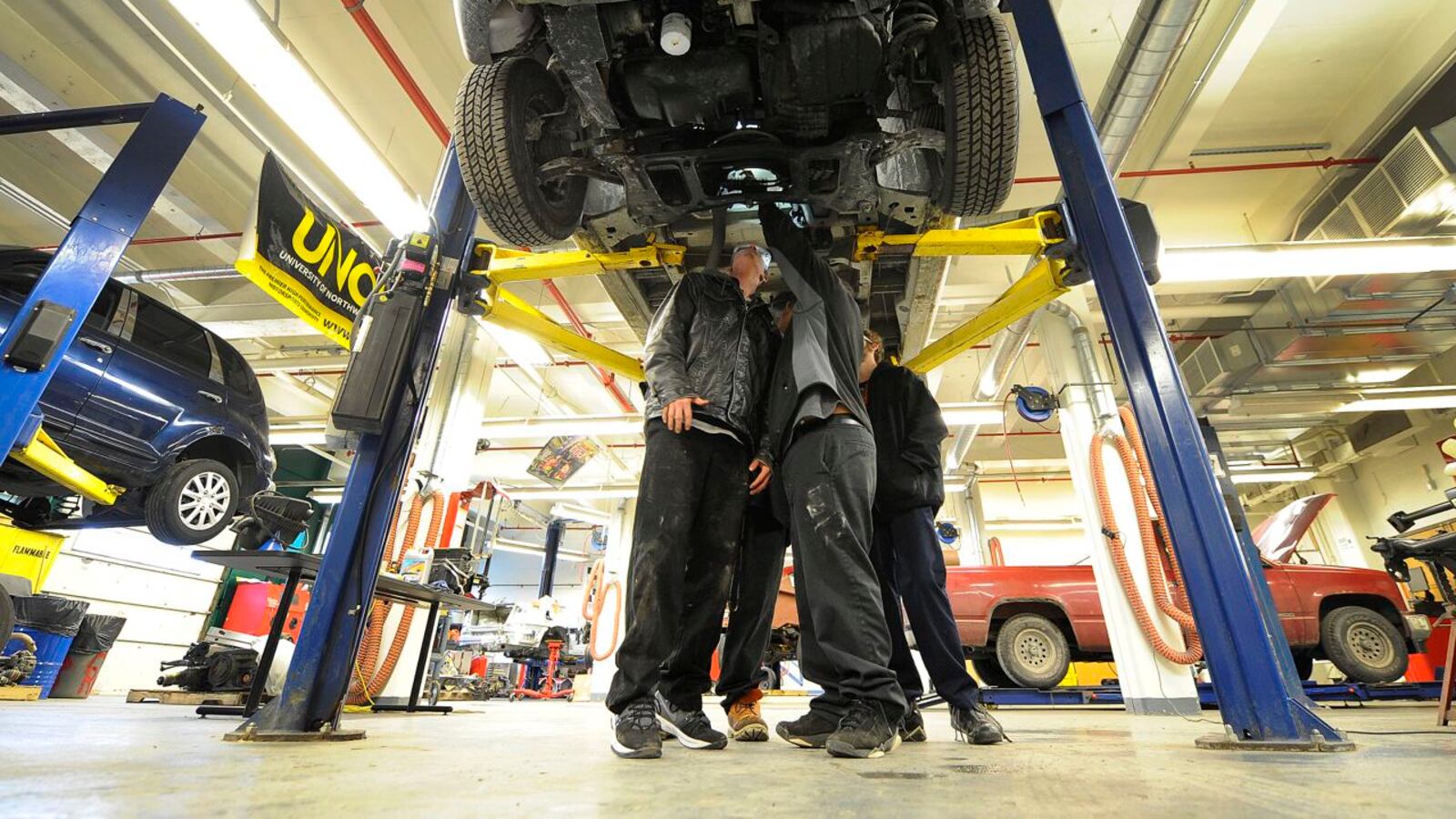Former Indianapolis Deputy Mayor Jason Kloth today announced a new $7 million effort aimed at strengthening the connection among K-12 schools, colleges, training programs and local employers.
The effort, called Ascend Indiana, will include partnerships with existing and new career and technical education programs to ensure that students learn the skills that will qualify them for jobs that companies are currently struggling to fill.
Indianapolis employers have jobs available, but some companies have great difficulty filling open positions. There are enough job seekers to fill those jobs, but most do not have the right qualifications. So jobs go unfilled and job seekers remain unemployed.
The workforce skills gap is one of the biggest problems facing the city, Kloth told a packed room of business, community, and education leaders at the Skyline Club atop the OneAmerica Tower. Those leaders included Mayor Joe Hogsett, former Mayor Greg Ballard, Indianapolis Public Schools Superintendent Lewis Ferebee, and others whom Kloth hopes will pitch in to solve it.
“A lot of people think unemployment is driven by not enough jobs being created,” Kloth said. “But in the U.S. and central Indiana a lot of unemployment is driven by not having enough education or content expertise to obtain the jobs that are open.”
The Ascend initiative includes four strategies to get more kids to graduate high school, complete college or training programs, and go into jobs in Indiana. The plan is to:
- Study employer needs to determine what skills will lead to good jobs;
- Identify workers who could move to better jobs and fill employer needs and offer them additional training;
- Build new talent pipelines for industries that have jobs but not enough qualified applicants; and
- Shift public policy to make the first three strategies work more easily.
Kloth said he envisions Ascend Indiana strengthening programs at local schools, connecting students directly with job opportunities, and providing employers with a steady flow of qualified candidates as they grow and create more jobs. The intended result: a stronger economy.
“This is a very attractive place for companies to expand and grow if they can access the talent they need to be successful,” Kloth said.
Ascend is a project of the Central Indiana Corporate Partnership, whose board of directors includes more than a dozen top executives of companies and organizations in Indianapolis. The effort is funded by seven local foundations, but the bulk of the funding came from a $5 million grant from the Lilly Endowment. (Lilly Endowment also supports Chalkbeat. Learn more about our funding here.) Some funding also came from the Indiana Department of Workforce Development.
By 2020, Kloth said, labor market research estimates nearly two-thirds of jobs will require study beyond a high school diploma. But right now only about 42 percent of adults have enough education, and the right training, to access those jobs. That translates to a gap of about 215,000 adults who could be employed in good jobs but fall short of the qualifications they need to land them.
Joyce Irwin, president and CEO of Community Health Network Foundation, gave the example of nursing as a changing field that needs its talent pipeline to evolve.
With the large Baby Boomer generation aging, the demand for health care services is growing at the same time when there is a shift toward more services delivered outside the hospital. That requires more nurses who can work more independently or as a part of integrated teams with other professionals.
So Community and other healthcare networks, she said, want to hire more nurses with bachelor’s degrees. Through Ascend Indiana, Community is crafting a program that will help its nurses work toward four-year degrees in partnership with universities, with some instruction delivered at work.
But in the long term, Irwin said she would like to see that pipeline extend back to K-12 schools, so that younger students have information about the skills they will need to complete a four-year nursing degree.
“At the beginning of the pipeline we can help them understand where nursing is going,” she said. “If you catch people younger you can get them to go toward the higher level skills.”

